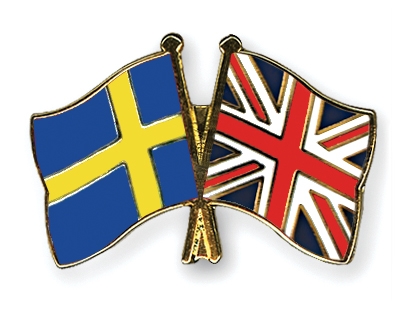Civil War

On November 17, 1810 Sweden declared war on the United Kingdom. The two sides were at odds for more than a year and a half, only finally reaching a peace accord in July of 1812, as formalized in the Treaty of Orebro. The Anglo-Swedish War, as it would later be known, had the lowest death toll in history: Zero.
How? Because the two sides never actually did any fighting.
Wars break out for all sorts of reasons — invasions, assassinations, immigration policy, or various and sundry odd reasons (e.g. a hungry pig, almost) which even in retrospect defy explanation. In the case of the Anglo-Swedish War, the cause was France. In 1803, Britian declared war on France, hoping to overthrow Napoleon Bonaparte from power. Napoleon, of course, was trying to create an imperial France overtaking much of Europe — at its peak, almost all of Western and Northern Europe were under his Continental System designed to harm Britian through a massive trade embargo. Over the course of the next dozen years, many European nation-states would join the UK in its struggle against Napoleon in a series of wars collectively called the Napoleonic Wars. In 1805, a coalition of Russia, the UK, the Holy Roman Empire, and others were in the throes of war.
At the time Sweden’s involvement was minor. They controlled a small area of land then known as Swedish Pomerania, now on the Baltic coasts of Poland and Germany, and they leased the area to Great Britian, such that the UK could use the area as a military base against France. But, fearing French reprisals, Sweden did little else to help efforts to contain Napoleon’s charges. That changed in August of 1805, as Russia promised that, if France invaded Sweden, the tzar would provide as many as 40,000 troops to its new Swedish ally. On October 31, 1805, Sweden declared war on France, starting what would later be known as the Pomeranian War. But France ended up defeating Russia, causing it to switch sides. Then, the Russians turned on Sweden. On January 6, 1810, the Swedes surrendered to France as the two sides signed the Treaty of Paris.
The Treaty required that Sweden join the Continental System and, therefore, no longer trade with Great Britian. For Sweden, that was untenable, causing significant economic harm, so trade occured through back channels for months. France would have none of it, and issued an ultimatum, requiring Sweden to seize all British products within their borders, take possession of all British ships within their waters, and declare war against Britian. If not, France would declare war on Sweden and, one assumes, invade. Sweden acceded to the French demands.
But “hey, you two, fight!” doesn’t typically amount to much when the two people can just sit there and agree to be at war without throwing any punches. That is, not much changed. The British still used at least one Swedish port and neither side actually fought each other. Neither side lost a single soldier.
Unfortunately, there were some indirect deaths. Given the fickle political alliances and allegiances which marked the era, Sweden decided to conscript men into military service, in case Britian took the declaration of war seriously and decided to actually invade. In June of 1811, a group of farmers rioted in protest of the policy, and 140 soldiers were dispatched to quell the uprising. Thirty of the farmers were killed in the process.
Bonus fact: The House of Bonaparte has continued to keep track of Napoleon’s bloodline — something which, compared to other imperial dynasties, is not all that strange. (The person who would be the claimant of a throne if that family were still in power is called a “pretender” — a term which is not a pejorative, as explained on its Wikipedia entry.) But there is one oddity: there’s a dispute over who is the rightful heir apparent. In 1997, Louis, Prince Napoleon, died, leaving his oldest son Charles as the would-be claimant of the throne. But in his will, Louis specified that his grandson (Charles’ son) Jean-Christophe Napoleon, become the dynastic heir. According to the Independent, Louis was upset because Charles “had divorced and re-married without his permission” and because Charles held political views (which were “republican and democratic” and not imperial) which his father held repugnant.
From the Archives: The World’s Shortest War: Another odd war involving Great Britain.
Related: A three DVD miniseries about the life of Napoleon. 3.5 stars on 56 reviews.

Leave a comment